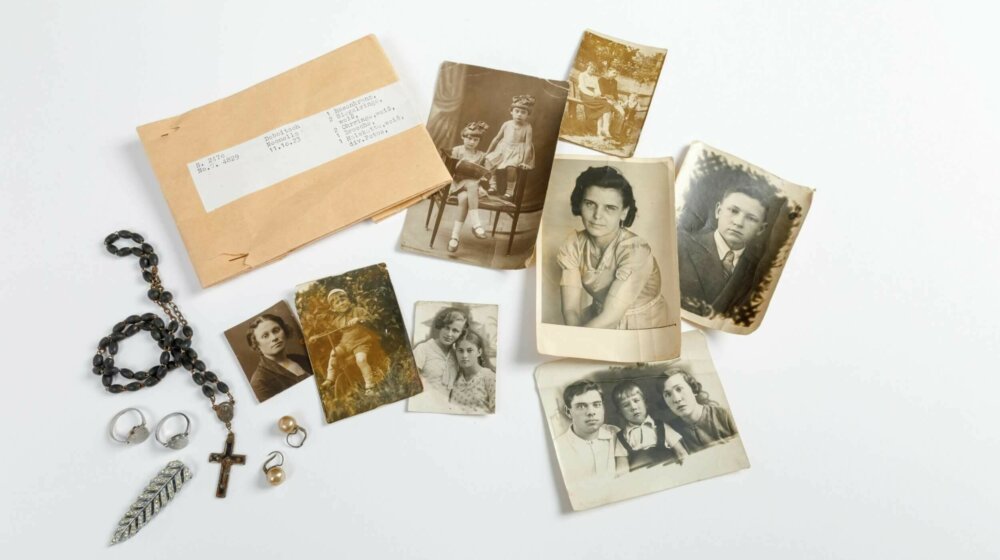The Arolsen Archives are helping families in Russia to search for information on victims of Nazi persecution

The Second World War ended 75 years ago – this anniversary has prompted many people in Russia to want to find out about the fate of relatives who were deported after Nazi Germany’s invasion of the Soviet Union. The Arolsen Archives are one of the first places to look: The world’s largest archive on National Socialist persecution contains references to around 17.5 million of the victims and survivors. The collection belongs to UNESCO’s Memory of the World. It is located in Germany, but was founded as an international institution in 1948 already. Nowadays, Russia is one of the countries that submit a particularly large number of inquiries to the institution every year.
In 2019, a total of 1 630 inquiries reached the Arolsen Archives from Russia. It is usually the children or grandchildren of victims who contact the institution today. They are looking for information and documents on the fate of relatives who were deported to Germany. In many cases, the staff of the Arolsen Archives are able to help and can provide information on the various stages of people’s paths of persecution. This is especially true when the inquiries concern former concentration camp prisoners or forced laborers. The 30 million documents in the archive contain more information about these victim groups than they do on any others. There is a much smaller amount of information on Soviet prisoners-of-war.
The Arolsen Archives provide a comprehensive, individual service that is free of charge, not only to relatives, but also to researchers or journalists from Russia. Inquiries can be submitted online in Russian. They are answered by qualified Russian or Russian-speaking staff who can also provide further assistance. As well as researching the fates of victims of persecution, they can also sometimes help people to find graves. “Inquiries from Eastern Europe and Russia have become much more significant for us in recent years,” explains Anna Meier-Osiński, Outreach Manager of the Arolsen Archives for the Central and Eastern European region. “There are still millions of families out there who have no idea what happened to relatives who were deported during the Nazi period. The younger generations are now trying to find out what happened.”
Since May 2019, relatives of victims of Nazi persecution and any other interested parties can conduct their own search for the names of the victims in the new, state-of-the-art online archive of the Arolsen Archives. It now contains a large proportion of the comprehensive collection of documents. Over the next few years, the institution will be working on further improving searchability for names, places, and other data and will gradually make all its documents available online.
The so-called personal effects are a very special collection of the Arolsen Archives. These are personal items belonging to concentration camp prisoners that were taken away from them by the Nazis on their arrest. The Arolsen Archives are now searching actively for the relatives of the people concerned in order to return these things to them. The archive sill has about 250 personal effects belonging to Russian prisoners – including things belonging to Neonella Doboitschina, for example, a young forced laborer. She was arrested by the Gestapo and was taken to the women’s concentration camp Ravensbrück before being sent to the Neuengamme concentration camp. It is not known what happened to her after that. Neonella’s jewelry and a large number of photos that have personal dedications written on them by her friends are still waiting to be returned to her relatives.
The Arolsen Archives work together with a large number of volunteers from all over the world who help them to the search for relatives. In Russia, it has only been possible to return the personal effects of three people so far. This is why the institution is hoping to find many more volunteers here. By carrying out research locally, volunteers can help make sure that as many of the personal mementos as possible can be returned to families in Russia.

